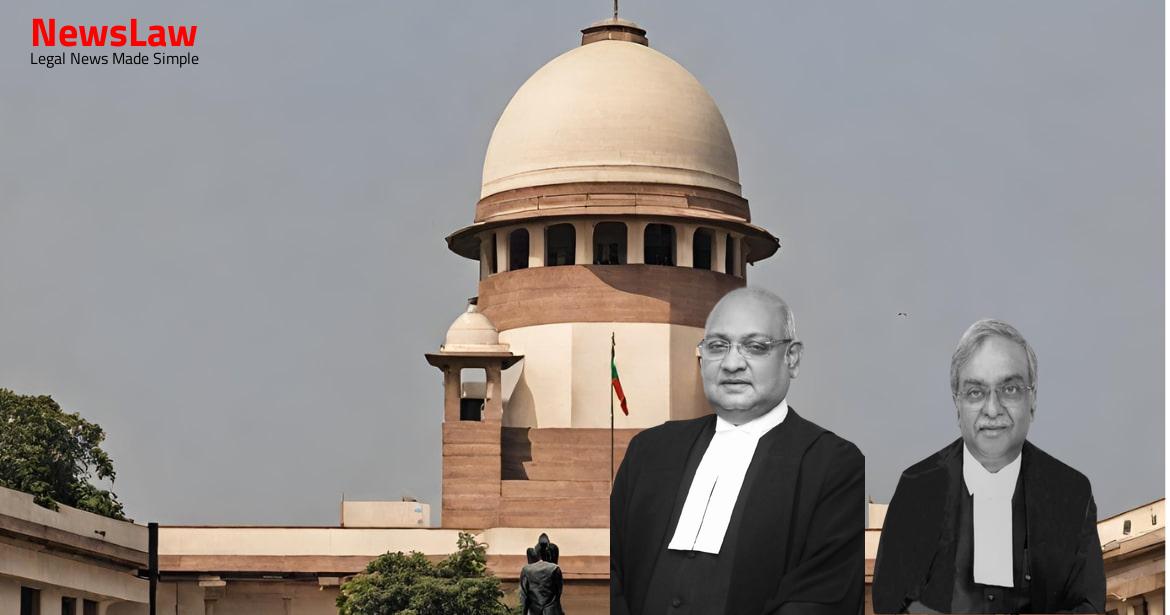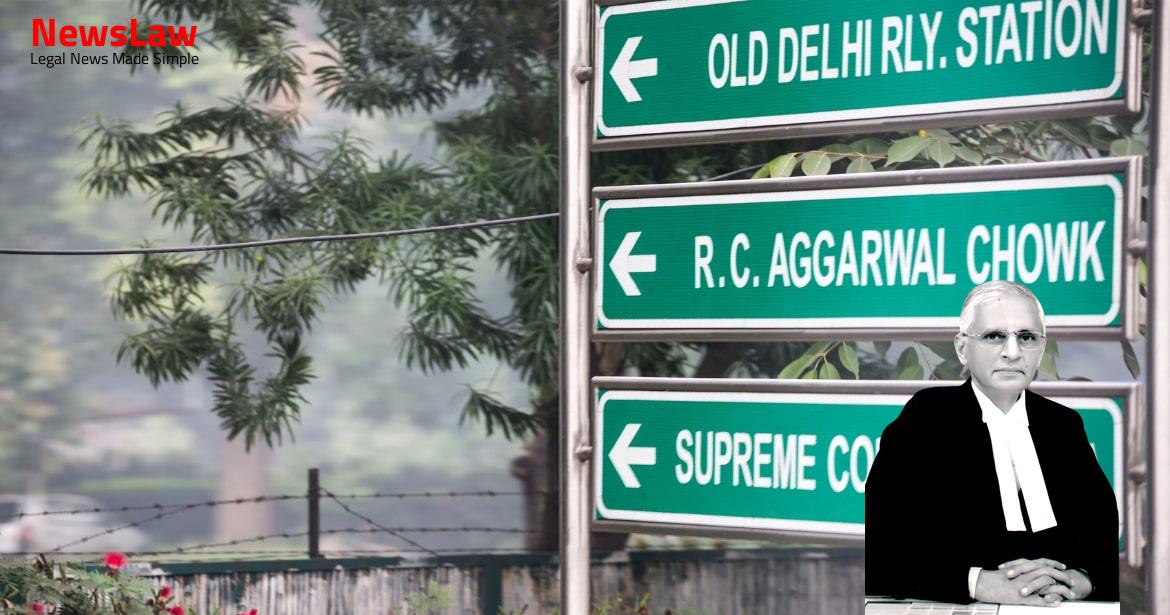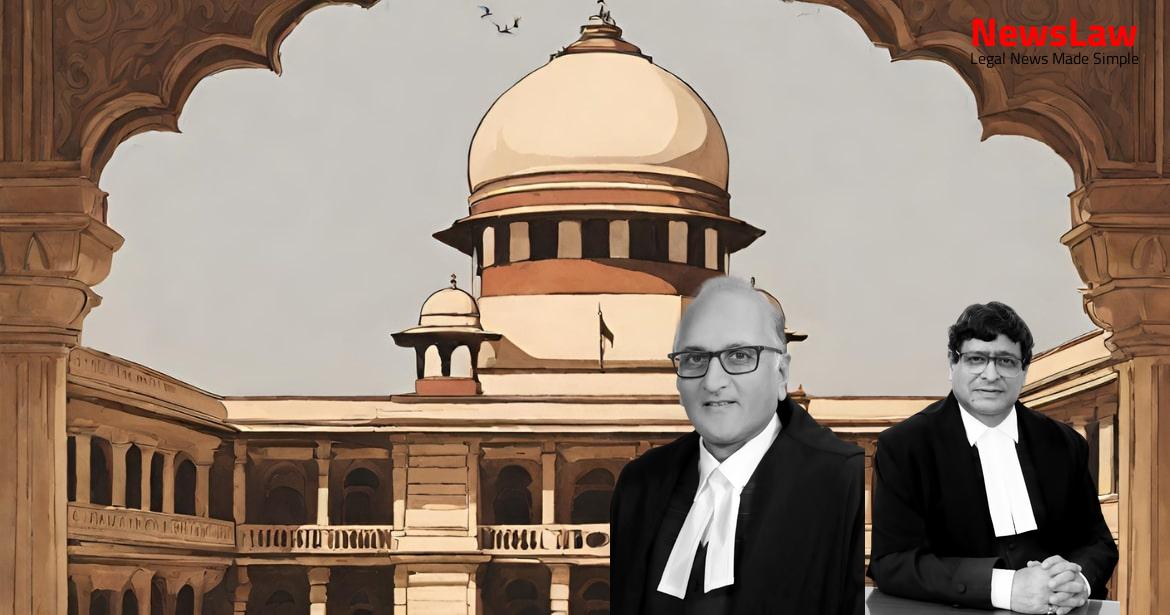Delve into the realm of legal analysis surrounding the quashing of criminal proceedings based on a settlement in a recent case. The High Court’s detailed evaluation of its powers under Section 482 CrPC is a focal point, showcasing the careful consideration of factors such as the nature of the offense, public interest impact, and the presence of commercial or financial elements. Discover how the court’s analysis played a crucial role in determining the outcome of the case.
Facts
- The appellant filed an application (CRM No 4655/2020) for quashing the proceedings on various grounds, including the settlement between the complainant and the main accused Gurmeet Singh.
- The High Court allowed the appellant to submit relevant material related to the case, which was done on 04.02.2020.
- Despite specific mention of the appellant in the FIR, the High Court refused to quash the proceedings.
- The appellant was declared a proclaimed offender based on an order dated 28.04.2014.
- The High Court directed the appellant to surrender before the Trial Court within two weeks and apply for regular bail, subject to conditions.
- An interim order stayed the Trial Court’s order dated 28.04.2014 and granted the appellant interim bail upon surrender.
- The appellant appeared before the Trial Court on 27.10.2018 and was granted interim bail on fulfilling certain bond requirements.
- The appellant appealed to quash the order dated 06.02.2020 by the Single Judge of the High Court but was granted bail with specific conditions.
- The Complainant moved an application to the Senior Superintendent of Police, stating that Gurmeet Singh promised to help his son settle in Italy.
- Gurmeet Singh demanded Rs 7 lacs for arranging the job.
- Rs 4 lacs were paid in cash and Rs 2 lacs by cheque.
- The son was sent to Italy but had to return after a few months as the promised job was not arranged.
- Various statements were recorded during the inquiry.
- The Inquiry Officer did not find evidence of cheating or breach of trust initially.
- Different officers had varying recommendations regarding the case.
- An FIR was registered on the direction of the Senior Superintendent of Police.
- Accused threatened further demands and consequences if money was not paid.
- The appellant was declared as a proclaimed offender as he was in Italy.
- A petition for quashing the order declaring the appellant as a proclaimed offender was filed before the High Court.
- After investigation, a triable case was only found against Gurmeet Singh.
- Accused Jaswant Singh and Gurpreet Singh were cleared due to lack of evidence of any offence.
- The Complainant and Gurmeet Singh entered into a compromise.
- Statements from Jaswant Singh and Gurpreet Singh were submitted via email.
Also Read: Legal Analysis in Joint Trials Error
Analysis
- The High Court’s jurisdiction to quash criminal proceedings based on a settlement differs from compounding an offense.
- High Court must evaluate if justice justifies quashing a criminal proceeding under Section 482.
- Compromise between offender and victim is not a basis for quashing criminal proceedings involving certain offenses.
- In cases with a civil flavor, High Court may quash if a conviction seems unlikely and continuation would be oppressive.
- Powers under Section 482 are to prevent abuse of court process and secure justice.
- Exercise of inherent power should prevent misuse or secure justice in deserving cases.
- Quashing is not appropriate for serious offenses with public interest impacts.
- Cases with commercial or financial elements may be quashed if resolved by parties.
- High Court must consider the nature and gravity of the offense in quashing decisions.
- Consideration of facts and circumstances is crucial in deciding whether to quash based on a settlement.
- The power vested in the High Courts under Section 482 CrPC can be utilized to address delay in proceedings, oppression, or harassment in trials, inquiries, or proceedings.
- High Courts have the authority to quash FIRs, investigations, and terminate criminal proceedings in cases of abuse of process of law.
- The power can be exercised in situations involving the breach of fundamental rights as per Article 21 of the Constitution.
- The High Courts can intervene in criminal matters or proceedings with undue delays and put an end to oppressive or unwarranted proceedings.
- The inherent power of the High Court under Section 482 CrPC can be used to give effect to orders under the Criminal Procedure Code, prevent abuse of court processes, or secure justice.
- The exercise of power under Section 482 CrPC by the High Court should be done with caution to serve the purpose for which it is conferred.
- The principles for using the power under Section 482 CrPC were reinforced by a seven-Judge Bench in the case of P. Ramachandra Rao vs State of Karnataka.
- The legal position regarding the powers of the High Court in quashing criminal proceedings under Section 482 CrPC was summarized in the case of S.W. Palanitkar and others.
- Appellant challenged order declaring him proclaimed offender
- Filed a 482 Cr.P.C. petition for quashing of proceedings
- High Court declined to exercise inherent power under Section 482 Cr.P.C.
- High Court did not consider entire material on record
- The dispute was deemed civil in nature
- Complainant settled with main accused Gurmeet Singh
- No justification to continue proceedings against appellant
Also Read: Dismissal of Contempt Petition: Legal Analysis
Decision
- The impugned proceedings related to FIR No.179 dated 29.10.2009, PS Fatehgarh Sahib are quashed for the appellant.
- All consequential proceedings are also quashed for the appellant.
- The appellant had been declared a proclaimed offender in the case.
Also Read: Legal Analysis on Alleged Multiple Agreements in Property Sale Case
Case Title: JASWANT SINGH Vs. THE STATE OF PUNJAB (2021 INSC 650)
Case Number: Crl.A. No.-001233-001233 / 2021



